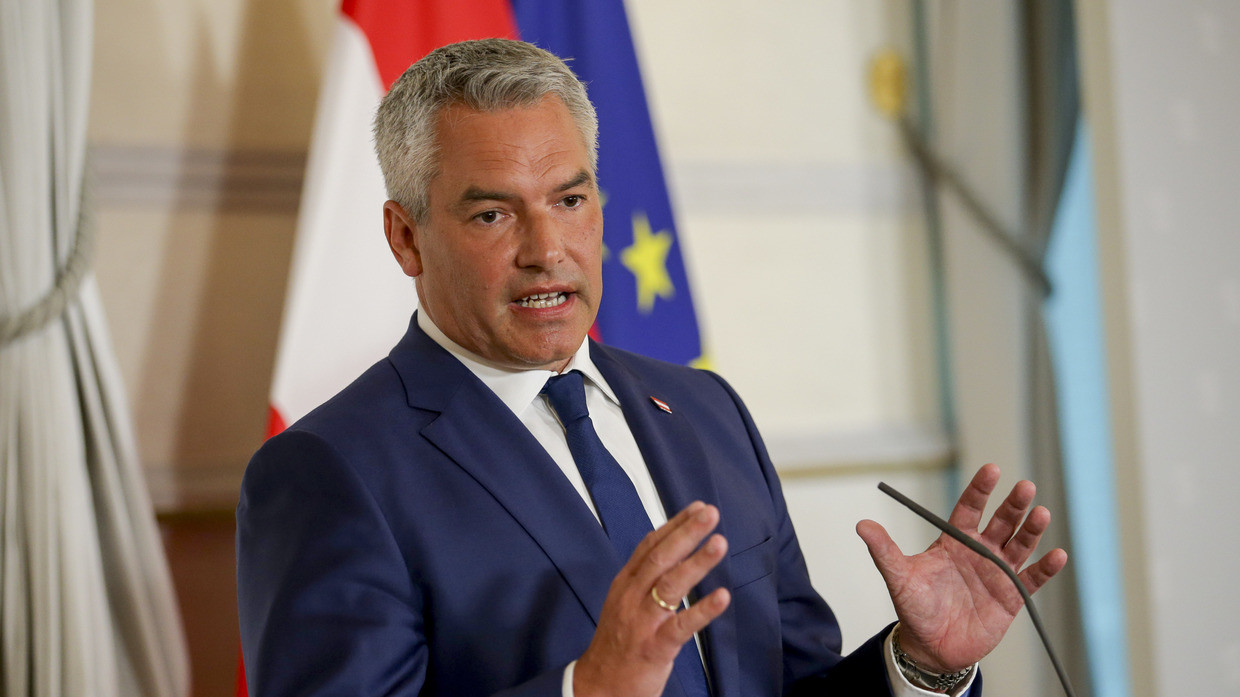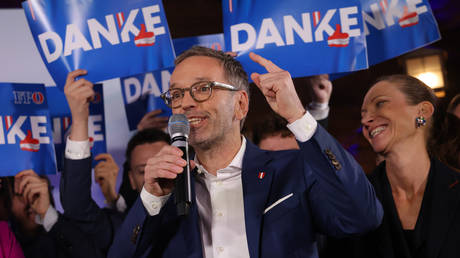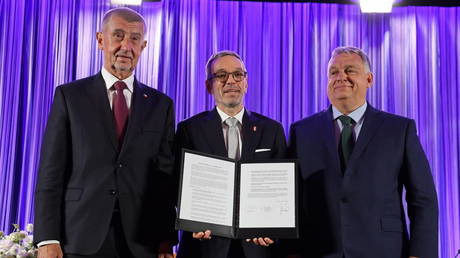Austria’s attempts to form a centrist coalition have ended in failure despite prolonged negotiations following the September 2024 election.
Chancellor Karl Nehammer announced on Saturday that talks between the Austrian People’s Party (OVP) and the Social Democratic Party (SPO) had failed to yield a deal. Meanwhile, the right-wing Freedom Party of Austria (FPO) has emerged stronger than ever, despite efforts to exclude it from power.
The parties involved in the negotiations had aimed to sideline the FPO, which secured a decisive 28.8% of the September vote. The OVP and SPO trailed with 26.3% and 21.1%, respectively.
Nehammer, who had been the chancellor of Austria since 2021, expressed regret over the collapse of talks, acknowledging that the parties had been unable to reach the necessary compromises, especially after the small liberal Neos party quit the talks on Friday.
“I will stand down as chancellor and as leader of the People's Party in the coming days and enable an orderly transition,” Nehammer said in a video statement on X on Saturday. “In the interest of the country, we pursued negotiations in good faith, but it has become clear that an agreement is not possible.”
Nehammer claimed that “destructive forces” in the SPO had “gained the upper hand” in negotiations, adding that “radicals do not offer a solution to a single problem.” SPO leader Andreas Babler, in turn, accused the OVP of playing political games that would result in “an FPO-OVP government with a right-wing extremist chancellor that will endanger our democracy in many ways.”
After the September elections, President Alexander Van der Bellen tasked Nehammer’s conservatives with forming a government that respects the “foundations of our liberal democracy.” On Friday, he reiterated his call to form a government “without delay.”
Austria now faces the possibility of fresh elections if no viable coalition can be formed. Until then, a caretaker government led by Nehammer’s successor is expected to manage day-to-day affairs.
The FPO has been a fixture in Austrian politics since the 1950s, but until 2024, it had never surpassed either the OVP or the SPO to win first place in a national election. The party joined a conservative coalition in 1999 and again in 2018, but was forced out of government the following year.
Under the leadership of Herbert Kickl, the party promised voters strict immigration restrictions, including the “remigration of uninvited foreigners.” Kickl is also an opponent of EU sanctions on Russia, and the FPO has pledged to stop paying into the bloc's weapons fund for Ukraine. “We stand for an active policy of peace and neutrality,” the party’s manifesto reads.
Kickl is also a close ally of Hungarian Prime Minister Viktor Orban, a fellow immigration hardliner and opponent of military aid to Ukraine. The FPO, Orban’s Fidesz, and Czech opposition party ANO formed an EU Parliament alliance in June. Orban has vowed that the group, calling itself “Patriots for Europe,” will “very quickly become the largest faction of the European right-wing.”



